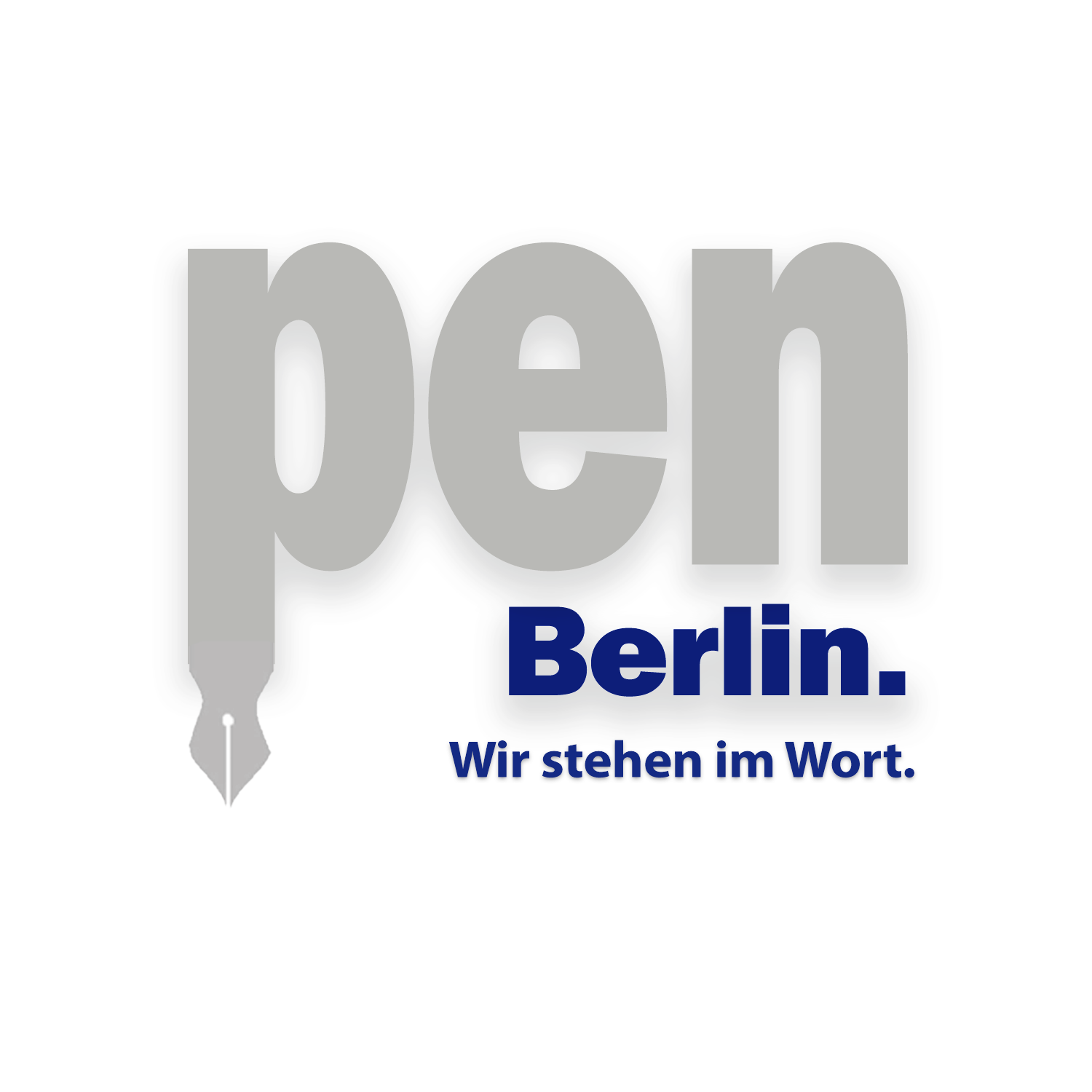Opening speech: PEN Berlin first congress »The Trick is to Keep Talking«, December 2, 2022
The Canary In the Democratic Coalmine
By Eva Menasse
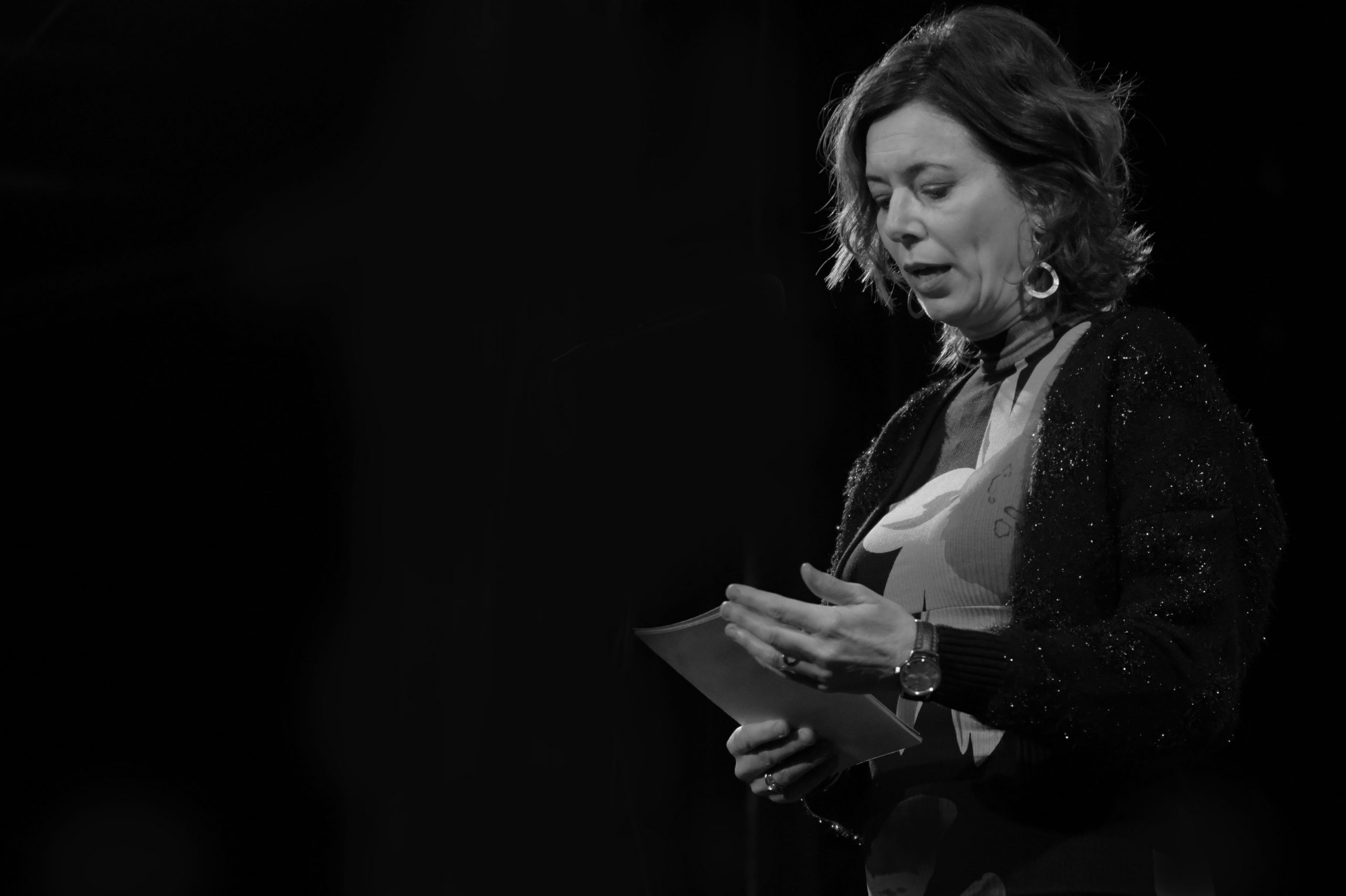
»From time to time the conscience of the world is stirred and shocked …»These were the opening words of the first PEN appeal to all governments, issued in 1928. Back then, only seven years after the foundation in London, there were already 45 PEN centers on five continents. »From time to time the conscience of the world is stirred and shocked by revelations of the ill-treatment, in this, that, or the other country, of people imprisoned on political or religious grounds«. All that is still true; only the »from time to time« now sounds like a ponderous understatement, as today’s world appears to be in permanent crisis mode.
Another seven years later, at the Catalan Congress in May 1935, Nazi Germany was the focal point of protests. International PEN passed an appeal demanding the immediate release of Ludwig Renn, Carl von Ossietzky, and the journalist Berthold Jacob. Jacob was a Jewish pacifist whose meticulous research on the Reichswehr’s covert illegal buildup of arms had earned him the epithet »the Sherlock Holmes of journalism«. As the PEN appeal put it, he had been »illegally abducted from Switzerland«. The original letter is signed by Klaus Mann.
This, in all due brevity, traces the arc from then to now. Germany’s crimes of initiating the Second World War and launching the Holocaust were preceded by a curtailment of freedom of speech and a threat to writers both so great that their colleagues all over the world joined their voices in protest.
To this day, that is the quasi-evolutionary sequence whenever countries are captured by unjust regimes: First comes censorship; journalists, writers, and intellectuals fall victim to state persecution, are arrested, sentenced, driven into exile. When all goes badly, the whole murderous program follows – for all those not part of the regime, that is, for far more than just the writers. What follows is oppression, spying, torture, death sentences.
Freedom of speech is the canary in the democratic coalmine.
Conversations in times of war
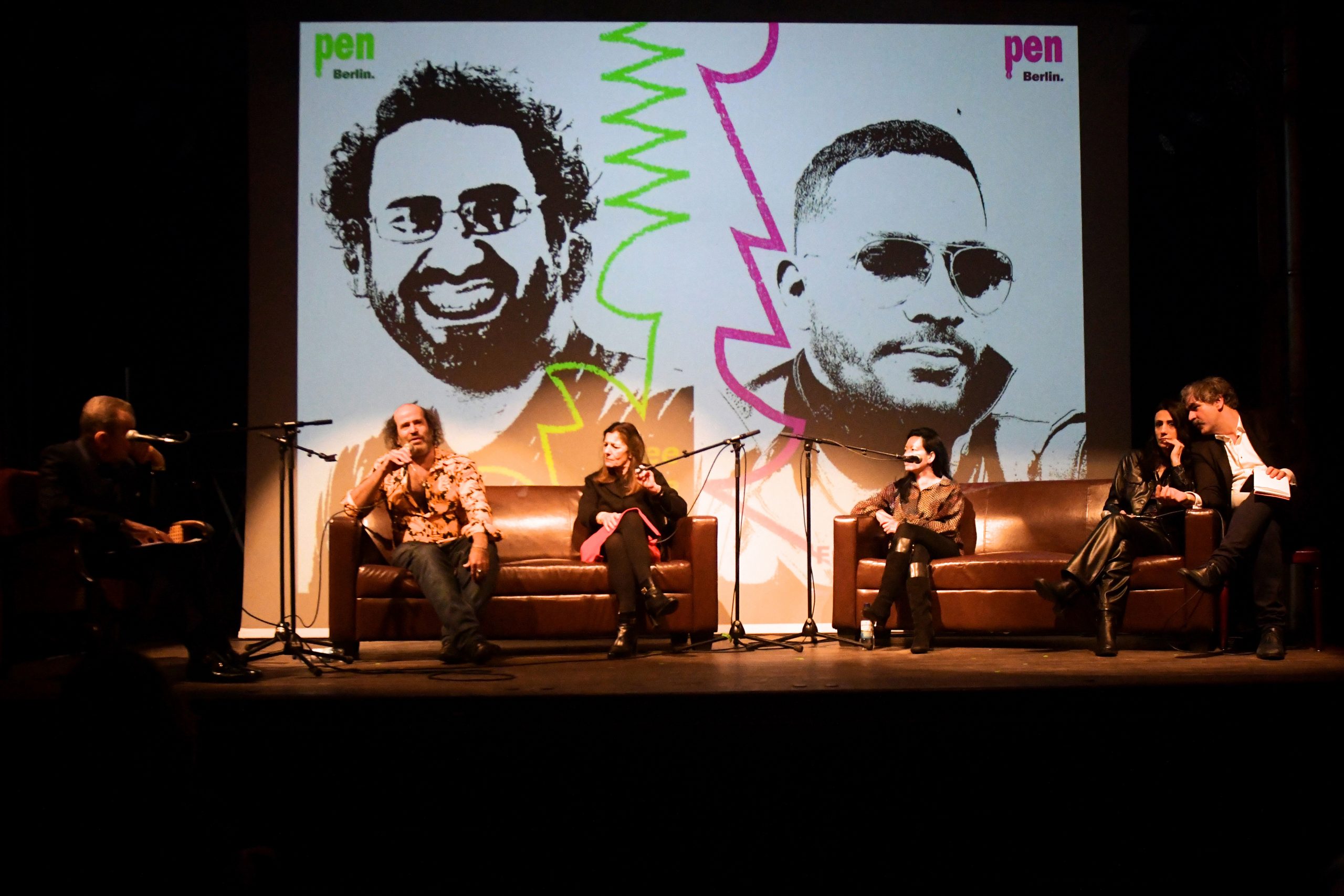
Germany, where generations of scholars have been working on the country’s own exile literature for decades, thus bears particular responsibility for the present day. Presumably, all PEN congresses of the past few years and decades have described the international situation as cause for concern – and yet the current state of affairs is particularly dramatic. Dictatorships like China, Uganda, Russia, and Iran are ruthlessly punishing their own citizens, arresting, torturing, murdering them. All around us in Europe, the number of dysfunctional, self-obstructive democracies has grown by leaps and bounds, and freedom of speech and the press has deteriorated significantly over the past years in many countries. Austria, the country of my birth, has also taken an embarrassing slide down the Press Freedom Index after a series of political and media scandals.
During this same period, social media has intensified the climate of discussion, with the effects of digitalization encouraging aggression and extremist standpoints; we will hear more on this subject later from our colleague and keynote speaker Ayad Akthar, the president of PEN America.
And since February 24, since Russia’s brutal attack on Ukraine, Europe has been at war again. Alongside all existential concerns caused by this war, including here in Germany, it once again presents a particular challenge for our discussion culture. I am convinced that an organization like PEN is assigned an important task: that of preventing dialog between these two countries from running dry.
Mistakes have been made in that process, and will no doubt continue to be made in future: It is just as inappropriate to make regular demands for Ukrainian writers to acknowledge the literary value of Pushkin and Dostoevsky, as it is to call on every Russian artist to issue a ritualized denunciation of Putin. And it would be just as misguided to judge Ukrainian authors solely on whether they feel inclined to take part in public discussions with their Russian counterparts, no matter how well known they are as dissidents. There are some who simply cannot do so, due to the situation of their family and friends back home. Others fear mass castigation in Ukrainian social media, a reaction that has been ignited by such cases in the past, and one as oversimplified as it is individually intimidating.
But for this very reason, those conversations that can be held only outside the warzone are a precious asset in times of war. We must try to continue enabling them. And for that reason, we must continue making new starts, creating new possibilities, opportunities and formats for these dialogs. An unsuccessful discussion must never be an endpoint; it must always be an incitement to do better next time.
Improvement, jolt of energy, attempt at healing
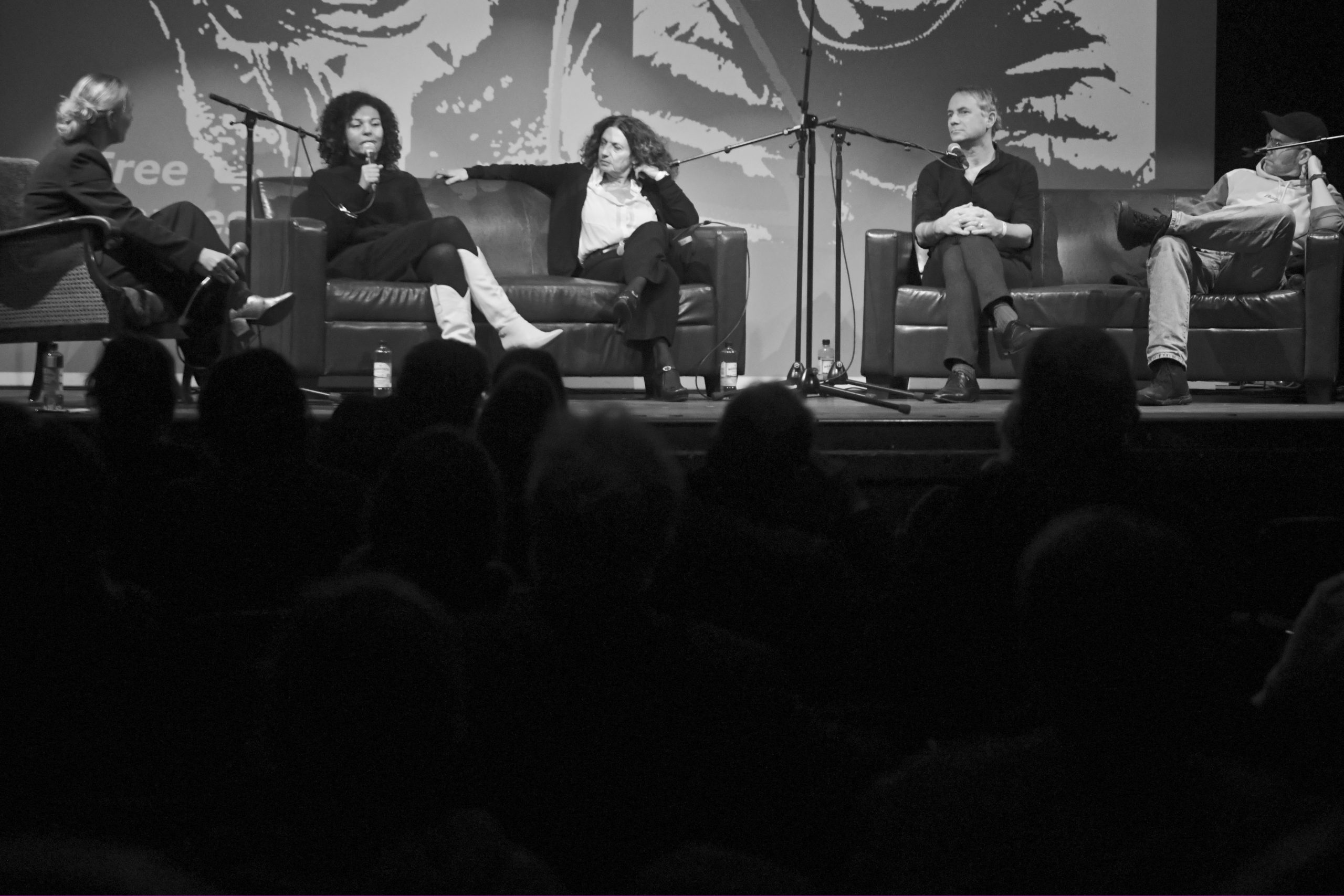
The fact that PEN Berlin was formed, almost exactly six months ago, as a second PEN in Germany, or, depending on the viewpoint, that a German-speaking PEN has split in two (and not for the first time) can be seen either as a symptom of the global crisis or, quite the opposite, as a response to it, as an improvement, a jolt of energy, an attempt at healing. A great deal speaks for this second, more positive interpretation, not only the rather banal recognition that competition is good for business.
What underlines it most of all is the vigor of a growing group of people – you, our members – who previously had little desire to join and shape an association; by their very nature, writers and journalists are often, to put it politely, pronounced individualists. Yet that has always been the paradox of the PEN idea: All the obstinate squabblers added together form something new; overcoming the many internal repulsions creates a new and different energy. For this to go beyond simple symbolism, we need the sometimes blunt degradations within the association, we need our statutes, money, organization, structure, and a few lines formulated as what we might call the lowest common denominator.
All of us in PEN stand united behind the idea of aiding those of our fellow writers in urgent and existential need of our help and solidarity, their dramatic fates automatically making our many internal differences of opinion fade into the background. In view of all the life stories I have become aware of in the past few months, as a previously relatively ill-informed individual, what Deniz Yücel so correctly referred to as the »Twitter scrum« suddenly appears rather peripheral. Writers and journalists who have to leave their countries lose much more than all other refugees: In emigration, they risk losing not only their audience and their tool of language, but with them their creativity and the basis of their existence, their courage and will to live. As representatives of the PEN idea, we intend to stand by them; that is the purpose of this entire undertaking.
That is the reason for PEN Berlin’s existence, since the quarrels within PEN Centre Germany proved impossible to resolve in May of this year.
Since people who were not present repeatedly ask why we didn’t simply reform the old PEN, I’d like to say today, for the very last time: Anyone who was in that room and previously uninvolved, like myself, could see that the committee chaired by Deniz Yücel was precisely that urgently needed attempt at reform, which failed so dramatically at that meeting in Gotha. Those of you who were part of what happened over the subsequent days and weeks, when so many people joined phone calls and Zoom rooms, know that there could only have been one alternative to this second – or, including the German Exile PEN, the third – PEN in Germany: a mass exodus, surrender, destruction, depression. I personally would have seen that as the total defeat of an idea now a hundred years old, and of continuing value. And I am glad and proud that it did not happen. All those still talking about the damaging and allegedly avoidable split could at least register that we began something new in the Literaturhaus Berlin on June 10, along with 370 like-minded people. There are now over 450 of us; tomorrow, after our members’ meeting with the next round of voting on new members, I expect us to have more than 500. For the past six months, we have been building something new, with strength and intention, with huge personal dedication by a few individuals, but also with joy and conviction.
The fact is that PEN Berlin and the PEN Centre in Darmstadt together already have almost twice as many members as before we were founded. The fact is that an overwhelming share of the PEN Berlin membership were not previously in any PEN group, for whatever reasons, and thus have been newly recruited as supporters of PEN. Our membership is younger, more diverse, more female, and more migrant – and that is genuinely positive news at a difficult time.
Exciting and exhausting six months

We, our nine colleagues on the board, as well as Deniz Yücel and myself as spokespersons, look back on six months as exciting as they were exhausting. We have succeeded in organizing an astounding series of first-rate, topically relevant events, beginning with the moving reading in solidarity with Salman Rushdie at the Berliner Ensemble on August 21.
Next came an ambitious events program at the Frankfurt Book Fair featuring prominent guests, and several solidarity evenings in support of Julian Assange and the dramatic uprising in Iran, on the human rights situation in Turkey, and the case of the whistleblower Chelsea Manning. The climax and end point of the year is todays’ first cultural congress, toward which we have been working for months.
All this was only possible because you, our members, volunteered your time and effort as discussion partners and chairs, as advisors, consolers, gap-fillers, and helpers, even selling tickets on the door today. And many more also by accompanying our fellow writers in need to official appointments and housing viewings.
Without you, so many and different writers, journalists, and translators, there would be no PEN Berlin.
Today, we want to thank you with this congress and party, for your trust in this initially rather vague undertaking and your support, for your many friendly, often enthusiastic emails, to which you often received no answer due to our heavy workload. And I’d even like to thank you for your occasional complaints: Sometimes they help us avoid the next mistake; often they make the organization more robust and help us to focus. But they always remind us of what we are: an association of individualists with a wide range of approaches to the world.
Our thanks go as well to the many who have not only actually transferred their first membership fee, but also paid more than necessary. Money will continue to be an issue in the near future; our work over the next few months will be to secure longer-term funding and establish a professional structure. We are in a number of discussions on the matter. And for all those here today who are not members: Donations are of course wanted and welcome, and very easy to make via our website.
We’d like to thank Berlin’s Senate Department for Culture and Europe in particular, and the city’s culture senator Klaus Lederer, for their generous support for this congress. Thanks too to our venue Festsaal Kreuzberg, which is not charging the rent it could get from others. The same goes for the band Muff Potter, who are playing here tonight because they appreciate PEN Berlin’s ideas. And our very special thanks go to Stefan Rudnick, who has been preparing and organizing this congress with us for months, and has stoically borne a fair amount of chaos on our part.
A brand-new PEN
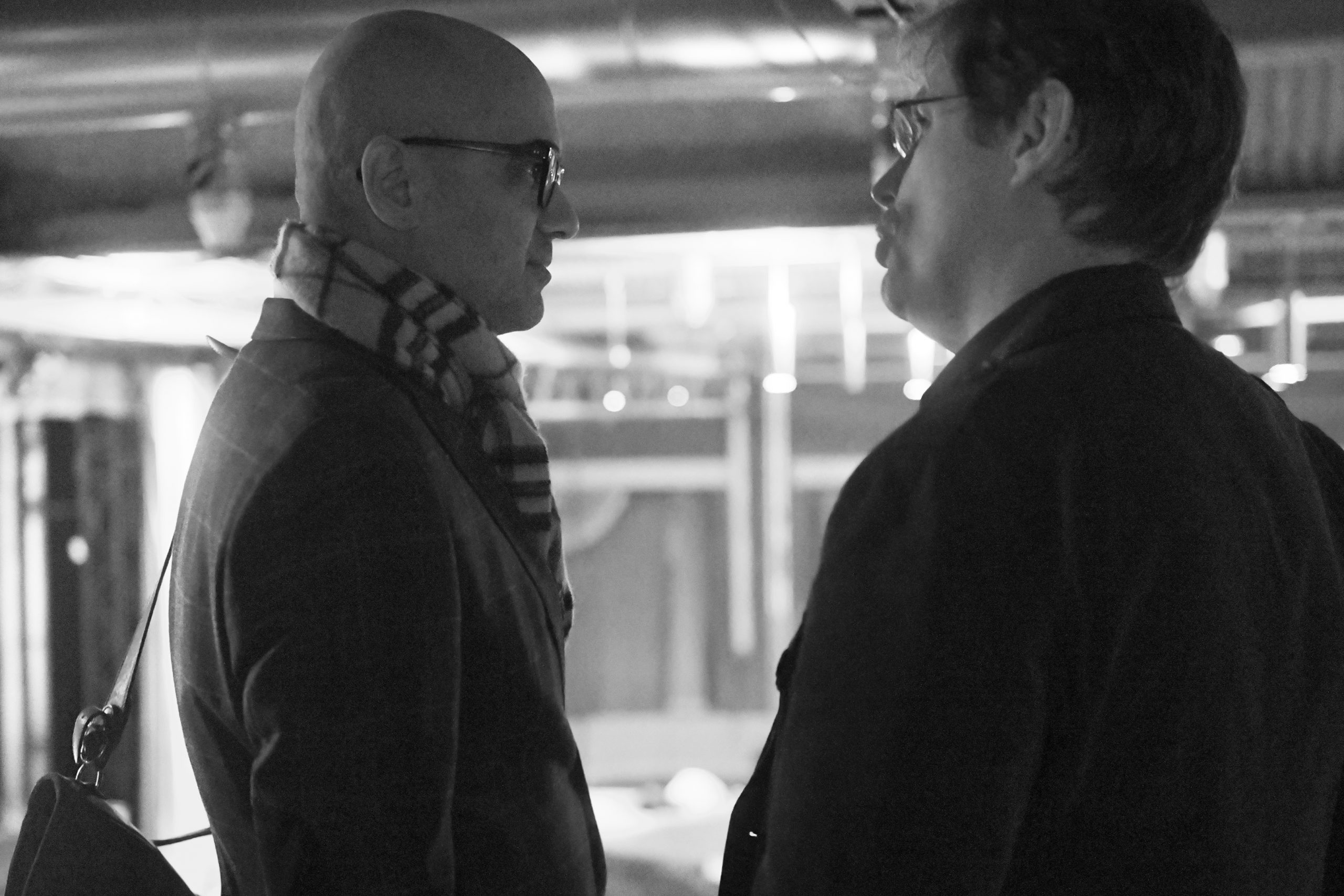
A few last housekeeping details: There are of course a few people absent today, not only due to Covid, but also thanks to cancelled trains and slipped disks. We are all the more delighted that all our panels will nonetheless be full, not least because Thea Dorn and Tomer Gardi have leapt in at the last minute. And one more important point: The keynote speech by our guest Ayad Akhtar, the current president of PEN America, will be brought forward to 8 pm, so please don’t take too long a break after the last panel discussion.
To finish off, I’d like to express my heartfelt personal thanks to my interim board, whose time in office in its current structure ends at tomorrow’s meeting. We’ve been working together incredibly intensely for six months, sometimes arguing but usually having very constructive discussions, and almost always finding good solutions. Starting out, we had absolutely no idea what faced us as inexperienced founders of a brand-new PEN, and that was probably a good thing.
I for one can’t remember when I last learned so many different things in such a short time as over the past six months. For that I’d like to thank, in alphabetical order: Simone Buchholz for first-class humor, all mottos and her »Ministry of Empathy«, which she set up within our board; Alexandru Bulucz for his thoughtfulness and his gentle resistance, always at the right time; Joachim Helfer for all his incredibly reliable work on dates, facts, figures, and applications, for which most writers have neither the nerves nor the talent; Konstantin Küspert for his unique conjunction of wit and technological prowess; Ralf Nestmeyer for his reliable organization of our online events; Ronya Othmann for her knowledge of the world and her undaunted calm in major debates; Mithu Sanyal for a specific intervention in an important meeting with PEN International; Elke Schmitter for coaching, office backup, analysis, and friendship; and Sophie Sumburane for all her practical and institutional expertise. And I thank my co-spokesperson Deniz Yücel, who is capable, when he wants to, of spinning the world in the other direction. A man who can argue a point vehemently and yet always remain a fellow campaigner, for whom the German word Mitstreiter is absolutely apt.
I wish us all a wonderful and inspiring congress. Thank you.
